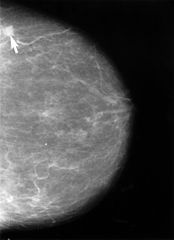MedicalResearch.com Interview with:
Rachel Farber, MPH
School of Public Health
Faculty of Medicine and Health
University of Sydney
New South Wales, Australia
MedicalResearch.com: What is the background for this study?
Response: Most breast screening programs worldwide have replaced the use of film mammography with digital mammography. While digital mammography provides significant technical and practical advantages over film mammography in the provision of population screening programs, the effect of this move on health outcomes remained unclear.
An increase in screen detected cancer rates is only beneficial if the additional cancers detected would have otherwise presented at a later stage and caused morbidity and premature mortality. An indirect measure of this is an observed decrease in interval cancer rates. Interval cancers are cancers that are diagnosed after a woman has a negative screening result and before her subsequent scheduled screening.
(more…)



